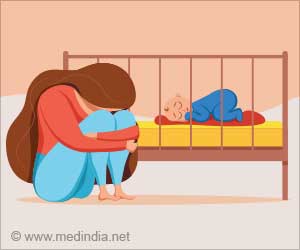New study explains how an overweight women who are currently breastfeeding, can lose weight.
A new study has indicated the steps by which an breastfeeding women who is also overweight can lose weight.
He studies have shown that the overweight women who are breastfeeding and want to lose weight could successfully achieve their target by decreasing the amount of sweetened drinks, snack foods, sweets and desserts in their diet. They have also recommended that should try and walk briskly for 45 minutes per day, for at least four days in a week.Dr. Cheryl A. Lovelady of the department of nutrition at The University of North Carolina at Greensboro, and the lead author of the study explained in the Journal of the American Dietetic Association that this method would help them lose almost a pound (half a Kilogram) a week, and that it would not affect women's ability to breastfeed, or cause any harm to their infants. Explaining that many women are anxious to lose weight after the baby arrives she said that the post-childbirth period may be an ideal time to implement exercise and diet program.
She and her team further mentioned that the effects of dieting that could have and impact on the mothers daily nutrient intake should be determined first as it could directly affect the nutrient content in the breast milk and maternal health. Dr Lovelady's team established the dietary changes on a group of women who participated in their study that looked into the effects of weight loss in overweight lactating mothers had on infants.
The study randomly selected 35 overweight breastfeeding women who were at their 4th week after delivery, having started breastfeeding and were recuperating from the delivery. These women were made to reduce their energy intake by 500 calories per day and to exercise, and a separate group of women who were acting as a control group were asked to maintain their usual diet for 10 weeks.
The test group were made to partake in exercises, which consisted of brisk walking or jogging or aerobic dancing at 65-80% of maximum heart rate. The investigators explained that by decreasing the consumption of foods high in fat and simple sugars with products like chips, soft drinks, sweets, high-fat meat, and food that contained starches and fat, they achieved the required reduction in the calories.
The investigators had asked all the women to continue to exclusively breastfeed their babies during the study and they noted that none of the women complained of any signs of reduced milk volume or fussy infants, or having any fatigue resulting from the diet and exercise. Dr Lovelady said that the infants of mothers in the study group grew as well as the infants of mothers in the control group, and that the mothers in the study group had lost significantly more weight and body fat over the course of the study as compared to the control group.
Advertisement











